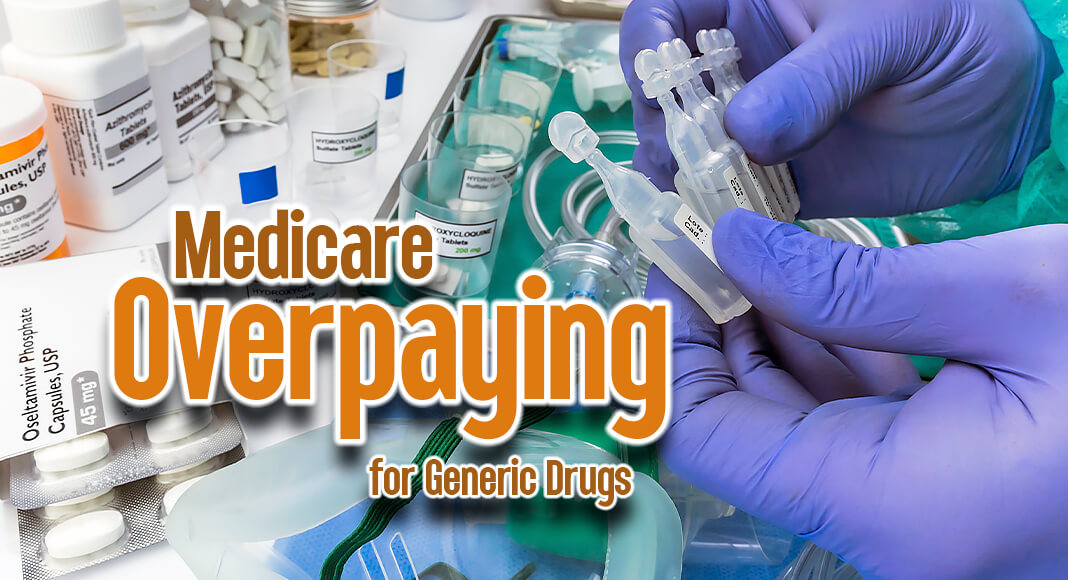
Mega Doctor News
By University of California San Diego
Newswise — Medicare is the single largest provider of health insurance in the United States, serving 63.8 million senior citizens as of 2022. Three-quarters of these recipients are enrolled in optional Medicare Part D plans, which provide outpatient prescription drug coverage to seniors through private insurance companies. In 2022, Medicare paid more than $160 Billion for prescription drugs, making it the single largest payer of pharmaceuticals in the US.
While Medicare is meant to keep healthcare affordable for seniors, millions of Americans still face steep costs for prescription medications. Researchers at Skaggs School of Pharmacy and Pharmaceutical Sciences at the University of California San Diego, West Health, and the University of Washington have now explained part of the problem.
The researchers found evidence that the private insurers that sponsor Medicare Part D are artificially inflating the costs of certain generic drugs by overpaying pharmacies. The findings published December 5, 2023 in the Journal of the American Medical Association.
Generic over-reimbursement is one of the areas targeted for reform by the United States Senate, after anecdotal evidence submitted earlier this year by the non-profit manufacturer CivicaRx raised concerns about Part D sponsors potentially over-reimbursing pharmacies for abiraterone, a cancer drug. The concern: that patients are ultimately impacted by these reimbursement practices because of how out-of-pocket costs, such as copayments and deductibles) are calculated.
“For instance, if a patient pays 30% as a copayment for a drug, that 30% would be applied to the inflated price, which could mean higher out-of-pocket costs for seniors,” said corresponding author Inmaculada Hernandez, PharmD, PhD, professor at Skaggs School of Pharmacy and Pharmaceutical Sciences at UC San Diego.
However, whether Part D Plan sponsors are engaging in generic over-reimbursement has been an outstanding question until now.
“This is the first study to investigate whether these practices actually take place in the Medicare Part D program,” added Hernandez.
To fill prescriptions, pharmacies purchase drugs wholesale and are reimbursed by insurers. In order to be reimbursed, pharmacies must adhere to contractual obligations that allow insurers to take back money in certain circumstances, such as when the reimbursement to the pharmacy is higher than a certain threshold or if the pharmacy’s cost of acquisition is very low. These ‘clawbacks’ by Part D Plans can be financially devastating to a pharmacy.
“It doesn’t make sense that insurers would overpay for drugs, then use clawbacks to retroactively adjust payments after the patient has paid their co-payment,” said co-author Sean D. Sullivan, PhD, professor of pharmacy at the University of Washington. “This practice is opaque and ultimately harms patients and pharmacies.”
The researchers gathered and analyzed data from the Centers for Medicare and Medicaid Services (CMS), focusing on spending and reimbursement data for the 50 generic drugs that Medicare Part D spent the most on in 2021. They found that some Medicare Part D sponsors were reimbursing at much higher rates than what pharmacies spent to acquire the drugs.
“The results are alarming,” said Hernandez. “We are talking about markups of 6000% or 7000% in some cases.”
In one of the most dramatic examples, the researchers found that insurers were reimbursing pharmacies an average of $126 per tablet for a cancer drug that cost $4.20 per tablet to the pharmacy. This corresponds to an average markup of 3000%, or $3600 per 30-day prescription. Some insurers paid even more.
“Seniors are clearly paying more for their medications as a result of these markups,” said Hernandez. “More research is needed to confirm the scope of these practices, but the evidence is concerning.”
Co-authors include: Nico Gabriel at UC San Diego, Anna Kaltenboeck at ATI Advisory, Cristina Boccuti at West Health Policy Center and Ryan N. Hansen at the CHOICE Institute, School of Pharmacy, University of Washington.
This study was funded by West Health Policy Center.










